
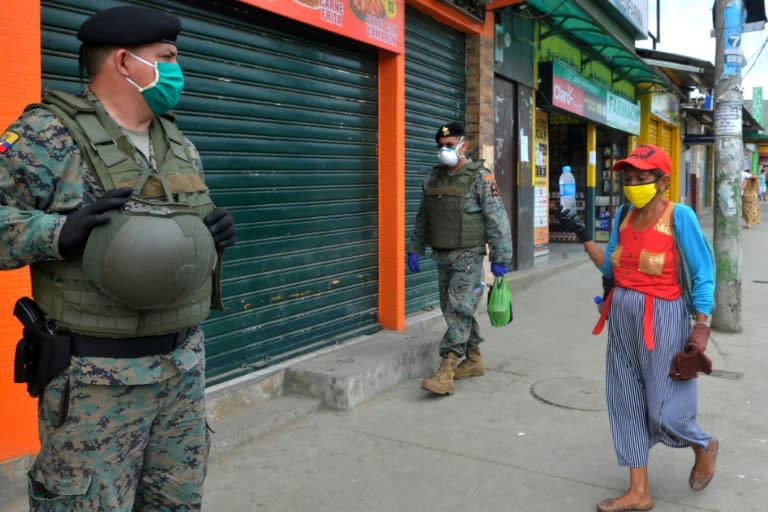
Guayaquil (Ecuador) (AFP) - Ecuador's economic capital Guayaquil is reeling from the most aggressive outbreak of COVID-19 in Latin America after the pandemic hit the city "like a bomb," its mayor said.
Cynthia Viteri has emerged from her own bout with the virus to battle the worst crisis the port city of nearly 3 million people has known in modern times.
"There is no space for either the living or the dead. That's how severe the pandemic is in Guayaquil," Viteri told AFP in a phone interview Monday.
Mortuaries, funeral homes and hospital services are overwhelmed, and Viteri said the actual death toll from the virus is likely much higher than the official national figure of 369.
Guayaquil accounts for more than 70 percent of Ecuador's 7,600 infections since February 29.
- 'Unprepared' -
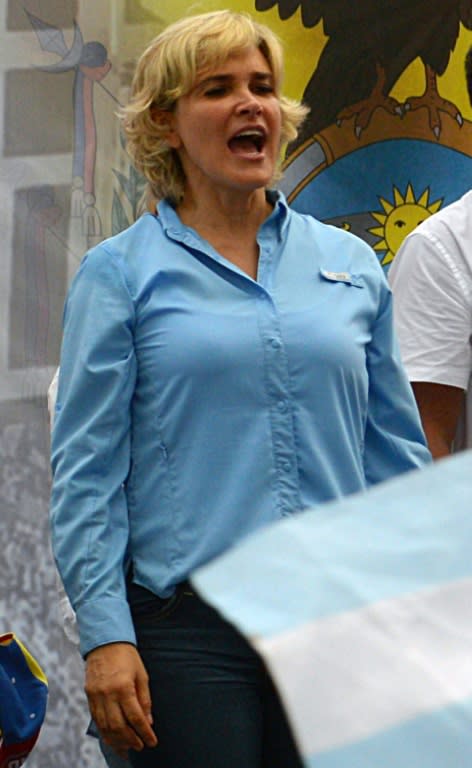
The 54-year-old mayor admitted the city was "unprepared" for the onslaught: "Nobody believed that what we saw in Wuhan, people falling dead in the streets, would ever happen here."
Now authorities are forecasting a death toll of more than 3,500 in the city and its hinterland in the coming months.
Guayaquil proved especially vulnerable to the virus because of its air links to Europe, Viteri said.
The first case of infection -- Ecuador's "patient zero" -- was of an elderly Ecuadoran woman who arrived from Spain.
"This is where the bomb exploded, this is where patient zero arrived, and since it was vacation time, people traveled abroad, some to Europe or the United States, and our people who lived in Europe came here," Viteri said.
"And when they arrived there were no controls like they should have been if we had known that this was already coming by air. And the city of Guayaquil simply convulsed. "
Too late, the city went into lockdown as authorities imposed a 15-hour curfew and bodies began to accumulate in homes, and even on the streets.
"The health system was obviously overwhelmed, the morgues overflowed, the funeral homes overflowed."
Guayaquil's authorities "are not the villains of the world," Viteri insisted.
"We are the victims of a virus that came by air" that she said echoed the yellow fever that devastated the city when it came over the sea from Panama in 1842.
"A bomb exploded here. Other places received only the shock waves. But the crater remained here in Guayaquil."
- Counting the dead -
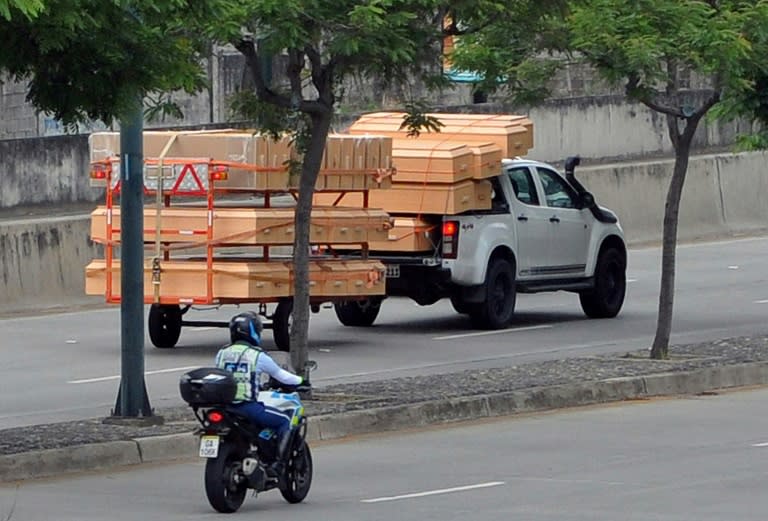
Coffins are seen stacked high on a pick-up truck and trailer as it passes a hospital in Guayaquil, Ecuador (AFP Photo/Jose Sánchez)
Viteri said the number of coronavirus deaths in the city is likely far higher than the official figure "for a single reason -- because there are no tests to determine how many people are actually infected in the city and in the country."
She continued: "Patients are dying without ever having had a test. And there is no space, time or resources to be able to carry out subsequent examinations and to know whether or not they died from the coronavirus.
"In the month of March alone, there were 1,500 more deaths than in the month of March last year.
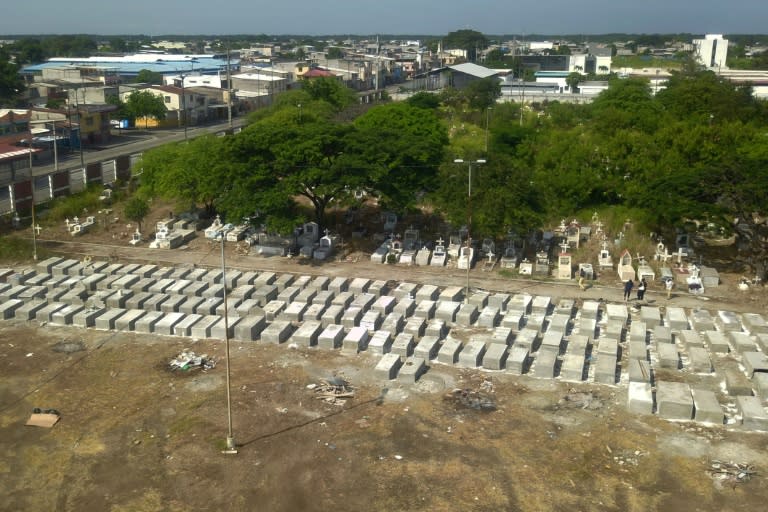
The true number will be known once this tragedy, this nightmare, ends."
People are continuing to "collapse in their houses, in the hospitals, all over the place," she said, because the normal medical services are overwhelmed.
"There are still women who need to give birth, people are still being run over, people still have diabetes and hypertension."
She said just last month alone "100 people" had died because they were unable to get dialysis treatment.
"Why? Because there is no space. Because we are stretched to breaking point, our doctors have fallen sick too."
Around 50 people from her own municipal staff had died, she said.
Viteri said her task now was to bring all the city's financial resources to bear on buying test kits, with $12 million already earmarked, to be able to detect, isolate and monitor positive cases.
"For me there is no other way," she said.
"We have to look after the living, and provide a decent burial for the dead. We are living in a war.
Responding to a spate of nightmarish media stories about bodies accumulating in hospitals, homes and streets, the city was making two new cemeteries available to bury the dead and relieve pressure on city morgues.
"The bodies are being collected daily," Viteri said.
"But this is very hard because it means there is mourning every day in Guayaquil."
Guayaquil barrio where hunger is more feared than COVID-19
Xavier LETAMENDI,AFP•April 14, 2020

A child remains inside his home as his relatives sit out the COVID-19 epidemic in Guayaquil, Ecuador's Nigeria neighborhood (AFP Photo/Jose Sanchez LINDAO)
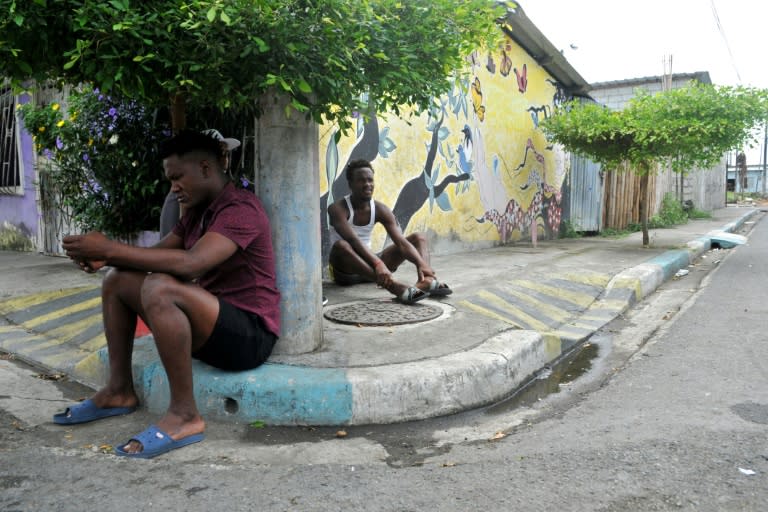

Guayaquil (Ecuador) (AFP) - When the curfew falls, a cat and mouse game begins between police and residents in a rundown barrio in Guayaquil, the city at the heart of Ecuador's coronavirus crisis.
Contagion is seen as the lesser of two evils. People here say confinement is worse than depriving them of food. They know hunger and fear it more than COVID-19.
"The authorities are saying to families: stay inside your house, but they don't see beyond that -- the need before we had this, as well as right now, is worse!" says Washington Angulo, 48, a community leader in the Afro-Ecuadoran neighborhood of Barrio Nigeria.
Tensions fray here around 2:00 pm every day when the 15-hour curfew imposed by the government against the spread of the coronavirus begins. That's when a peculiar game of hide-and-seek begins.
"The police come with a whip to send people running, but how do you say to a poor person: 'Stay home,' if you don't have enough to eat?" said Carlos Valencia, a 35-year-old teacher.
Reports have flared on social media of the police using excessive force. But Valencia acknowledges that as soon as the officers leave, local people are out on the streets again. Until the police return to chase them home again.
- No protection -
Some 8,000 families live in Barrio Nigeria on the Mogollon estuary, on a finger of the Pacific that stretches inland.
Guayaquil is one of the worst hit cities in Latin America, but there are no confirmed cases so far in Barrio Nigeria. Locals seem barely aware of the tragedy unfolding across the city, where many families have had to wait days for overwhelmed authorities to collect the bodies of their relatives, after local health and mortuary service systems collapsed under the weight of the pandemic.
Men hang around street corners to chat, the younger ones playing impromptu soccer matches on the narrow streets. The women gather by the estuary and children play marbles on the street.
Nobody wears a mask, or gloves. Social distancing is non-existent here, handshakes are still exchanged in greeting.
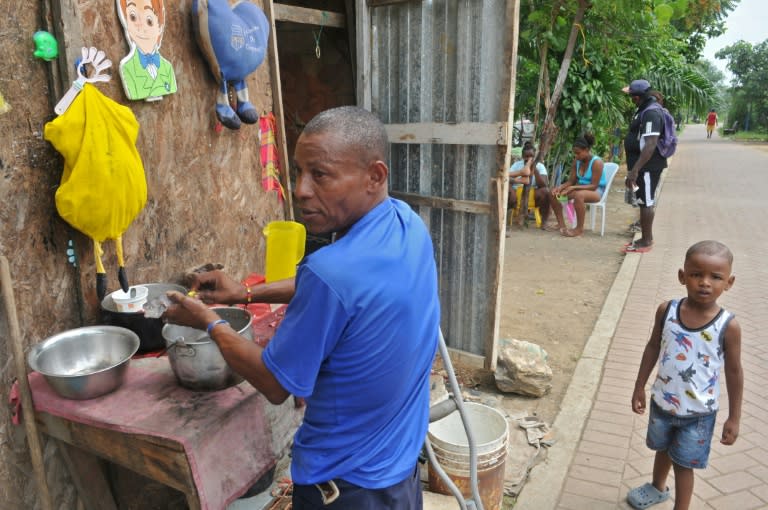
Many families share the same small houses under a tin roof where temperatures can reach 32 degrees Celsius (90 degrees Fahrenheit) in this Pacific coast city.
There is no air conditioning or ventilators, just a television to combat the boredom.
- Empty fridges -
Many of the residents of Barrio Nigeria come from the Esmeraldas province, on the border with Colombia.
The pandemic has left most of the locals, who make their living as informal vendors, recyclers, cooks or car park attendants, unemployed.
The authorities, through donations from private companies, have been trying to alleviate the worst of the crisis with grocery handouts.
"Some tuna, noodles, that's not enough. There isn't even a piece of meat or cheese. Fresh produce doesn't reach here. We are living a difficult life," said Angulo.
Others have received nothing at all. Marcial Vernaza, 61, is furious as he stands at his front door.
"Open the fridge and there's nothing to see but ice in there. I have nothing. My son is asking me for food."
Even fried rice, the most common dish in Barrio Nigeria, is in now a rare treat, after the price of eggs doubled, according to Vernaza, who hasn't worked in a year.
In the midst of the economic crisis paralyzing the country, the government is providing a $60 subsidy to the poorest families.
Fulton Ordonez, a 52-year-old left lame by polio as a child, hopes someone will eventually come to help him at his small wood cabin by the estuary.
"I'm afraid they'll kick me out of here," he said, the virus playing no part in his fears.
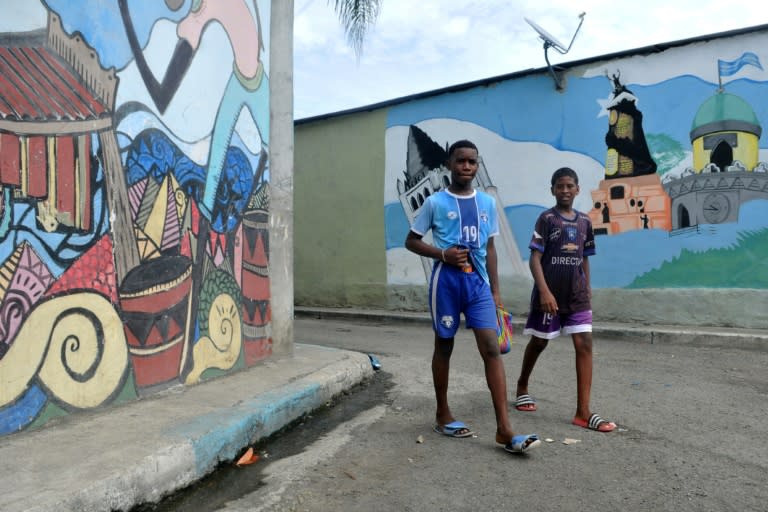
No comments:
Post a Comment